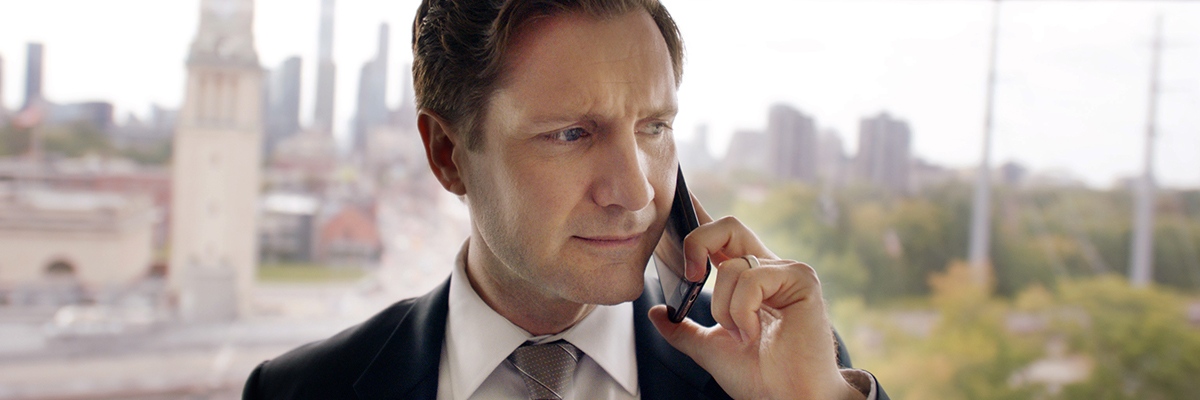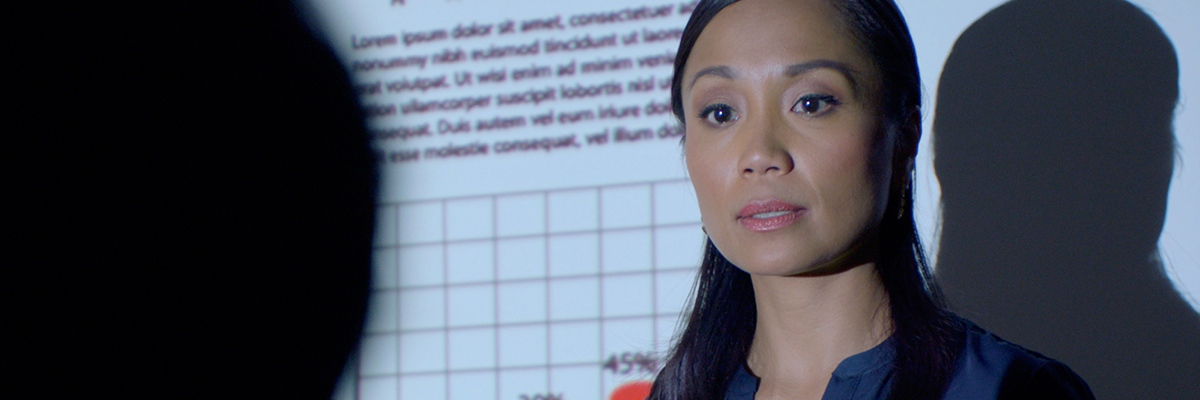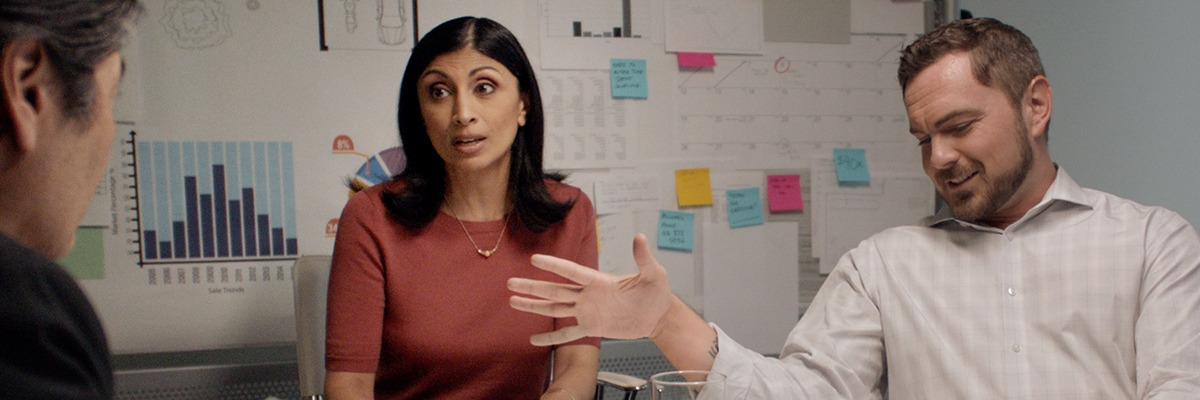That little voice inside your head
It sometimes tells you not to say anything even though you may have witnessed behaviour that is non-inclusive or inappropriate. It’s human to feel like you don’t want to rock the boat or create conflict with someone.
But, if we’re going to make our workplaces, our communities and our world more welcoming for everyone, we all have a responsibility to create an environment in which we can feel safe speaking up for others and also ourselves.
Below you’ll find additional information and resources to help you and your organization with your ongoing journey to inclusion. Maybe the next voice you’ll hear will be your own when you speak up for inclusion.
 Image of Caucasian Woman Sitting at Desk
Image of Caucasian Woman Sitting at Desk
50% of people have experienced sexual jokes in the office.1
Now that’s nothing to laugh about.
Behaviour that’s deemed inappropriate still happens every day in the workplace. Although 9 in 10 people think sexual jokes or stories are inappropriate for work, more than half continue to see it happen. If we all speak up, we can create a safer and more inclusive environment for everyone.
Speak up for a workplace where jokes never cross the line:
Download the Guide Image of Caucasian Man on a Cell Phone
Image of Caucasian Man on a Cell Phone
Of the 39% of people who don’t speak up against racism, a third are afraid of the consequences.2
There’s no safety in those numbers.
When we talk of a safe workplace, it is often thought of in terms of physical safety. Equally as important, creating a psychologically safe environment should be a priority of every organization. One where any employee feels confident confronting racism. Only then can real change happen.
Speak up for a work environment free of racism:
Download the Guide Image of Southeast Asian Woman Giving a Presentation
Image of Southeast Asian Woman Giving a Presentation
According to research, a foreign accent diminishes a person’s credibility.3
That’s a little hard to comprehend.
More often than not, people who are newer to speaking English are perceived as less capable of performing high-skilled jobs despite having substantial qualifications. If we want to bring more ideas to the table, let’s pay attention to what’s being said rather than to how it’s said.
Speak up for a workplace that includes all kinds of voices:
Download the Guide Image of African-Canadian Man in his Office
Image of African-Canadian Man in his Office
Over 40% of people don’t speak up for fear of being unsupported by colleagues.4
We’re at a loss for words.
There are many legitimate concerns that can prevent people from having their voice heard, like reputational risk and fear of retaliation. That’s why it’s important to establish a culture where anyone, regardless of their standing or title, feels comfortable and safe speaking up without fear of reprisal.
Speak up for supporting your colleagues:
Download the Guide Image of Two Caucasian Women in an Office Judging a Woman in a Hijab Walking By
Image of Two Caucasian Women in an Office Judging a Woman in a Hijab Walking By
23% of Canadians have experienced discrimination at work.5
To be fair, that number is subject to change.
People in marginalized groups face discrimination on a daily basis. Sometimes these forms of discrimination are more subtle, and extend beyond race, religion, sexual orientation or gender. When we’re aware of all forms of discrimination and bias, we can make our workplaces and communities a more inclusive place.
Speak up for ending workplace discrimination:
Download the Guide Image of South Asian Woman Interrupted by Man in Meeting
Image of South Asian Woman Interrupted by Man in Meeting
A woman is 33% more likely to be interrupted than a man.6
Can we talk?
By not listening, the message is clear. Namely, all opinions aren’t being considered. Inclusion begins by opening our perspectives and allowing each and every person to be heard.
Speak up for all voices to be heard:
Download the GuideView All ReferencesHide All References
https://www.npr.org/2018/02/23/586174752/poll-the-inappropriate-office-behaviors-most-pervasive-in-workplacesExternal site icon
https://pearnkandola.com/app/uploads/2018/03/RaceSurveyReportFNLNewBrand.pdfPDF icon
https://journals.library.ualberta.ca/cjs/index.php/CJS/article/view/29346External site icon
https://www.advisory.com/daily-briefing/2017/07/07/men-interrupting-womenExternal site icon

